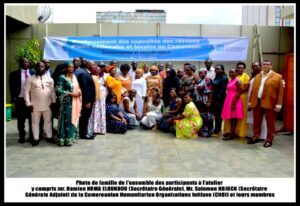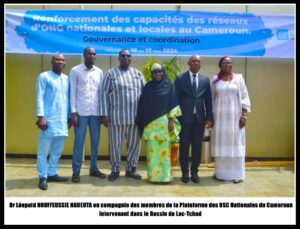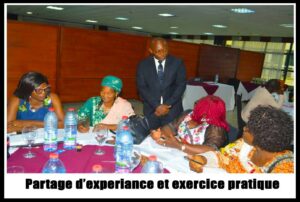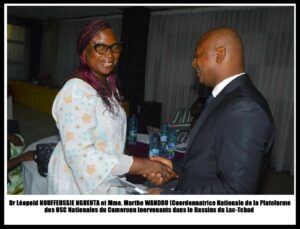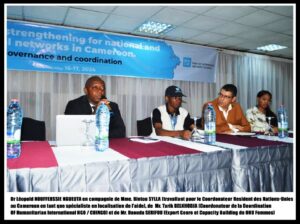National and local NGO networks in Cameroon and the Lake Chad Basin: between state obstruction and internal dissension
Understand how local humanitarian networks in Cameroon and the Lake Chad Basin construct relationships in response to the inertia of the Grand-Bargain resolutions, as well as the power dynamics and obstructions they face.
The notions of “relationships” or “networks” are not new to the humanitarian field. They have always structured the interrelationships that govern aid actors. Yet these relationships have always been built on asymmetrical, unbalanced and even unequal logics, based as they are on “ethnocentric” trends and partnerships. These asymmetries are not limited to beneficiary-humanitarian relations, but also extend to humanitarian actors themselves, and to unbalanced North-South partnerships.
This research aims to study local humanitarian networks in Cameroon and the Lake Chad Basin. Its first objective is to question the role of public actors in the weakening of the links established between local, national and sub-regional NGOs around the different platforms. It also aims to report on the perception that these public actors have of these networks, which they consider as relays of international NGOs. Finally, this research aims to show that the demobilization of actors within these innovative mechanisms is the result of struggles and internal power dynamics, caused by the rise of leadership conflicts within these new platforms.
Is the networking dynamic of humanitarian CSOs today weakened as much by the state actor who perceives in these CSOs a continuum of international solidarity actors as by the CSOs themselves due to internal tensions, quarrels and power relations?
The research is taking place in Cameroon and in other countries of the Lake Chad Basin (Nigeria, Chad and Niger), with transnational actors who work there in networks with Cameroonian associative actors.
This study seeks to explore avenues of reform to consolidate the networking process of national and local NGOs. It thus uses these recommendations to bring about a social transformation within the humanitarian system in order to strengthen their autonomy. The social interest of this research therefore appears as an advocacy tool to influence public and humanitarian decisions.
This research finds its relevance in a context where actors in the South among themselves express a desire for autonomy to have a minimum of control over humanitarian actions that concern their populations, hence the investment in national and sub-regional networks.
The added value of this work is that it allows us to understand that alliances and networks of actors can also be built between national actors, thus breaking with classic approaches that favored the North-South partnership logic. This research therefore has a scientific added value that brings to the forefront a new practice of humanitarian transition based on South-South networks. Deconstructing this victim image attributed to local actors, by showing how their voices can be amplified, via consultation frameworks, constitutes an innovative approach, which breaks with the infantile logic of international solidarity actors. It is thus a question of rethinking the practices of international solidarity for more respectful cooperation, by highlighting the capacities of local organizations, which act differently and by themselves. These practices from beneficiary countries question the place and role of international actors, by opening up new avenues of possible action outside the traditional system, even if at the same time, such new practices also remain confronted with other types of challenges, also South-South, in particular state obstacles and internal quarrels which emerge in the middle of these networks, weakening the current dynamic.
Biography
Doctor Ngueuta Nouffeussie Léopold is a Cameroonian national, a lecturer in the Department of Political Science at the University of Maroua and a CAMES Assistant Professor. He was a 2015 recipient of the French Government Scholarships for research stays at the Les Afriques dans le Monde (LAM)/Science Po. Bordeaux laboratory as part of the finalization of his doctoral thesis entitled “The policy of free movement of goods and people in the process of building the CEMAC sub-regional space”. He was also a 2021 recipient of the Academic Mobility Support Program of the Ministry of Higher Education of Cameroon. He is a researcher at the Center for Studies and Research in Peace, Security and Integration (CERPSI), Vice-Director of the Center for Research on Africa and Contemporary Issues (CRAEC) and Member of France Alumni Cameroon (Network of Cameroonian Graduates of France). He is interested in sub-regional/international public policy issues, security and humanitarian crises.
